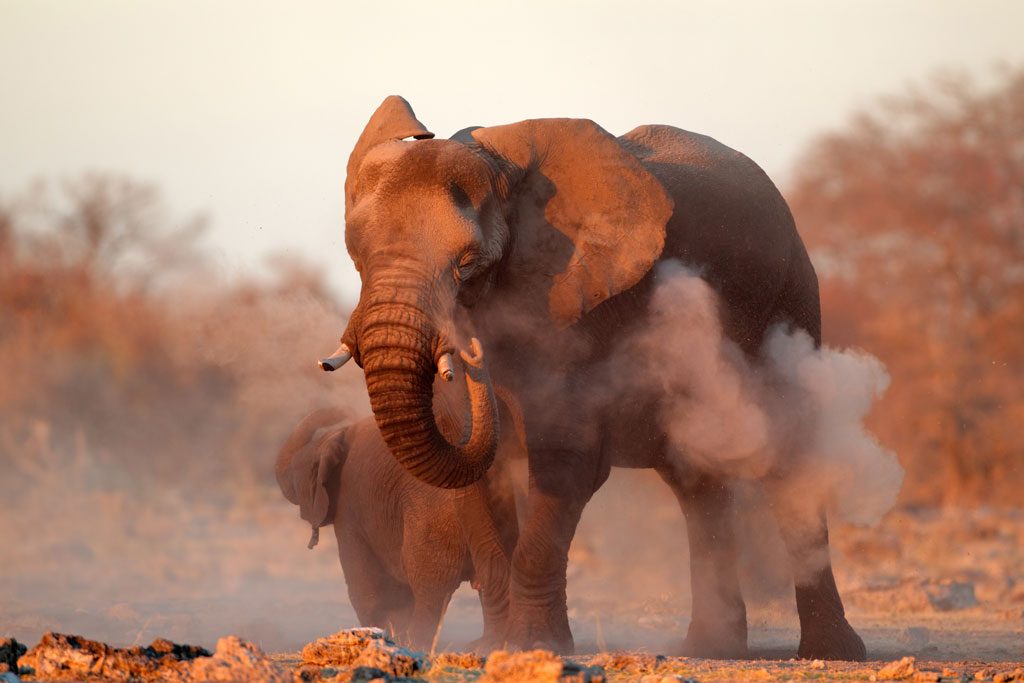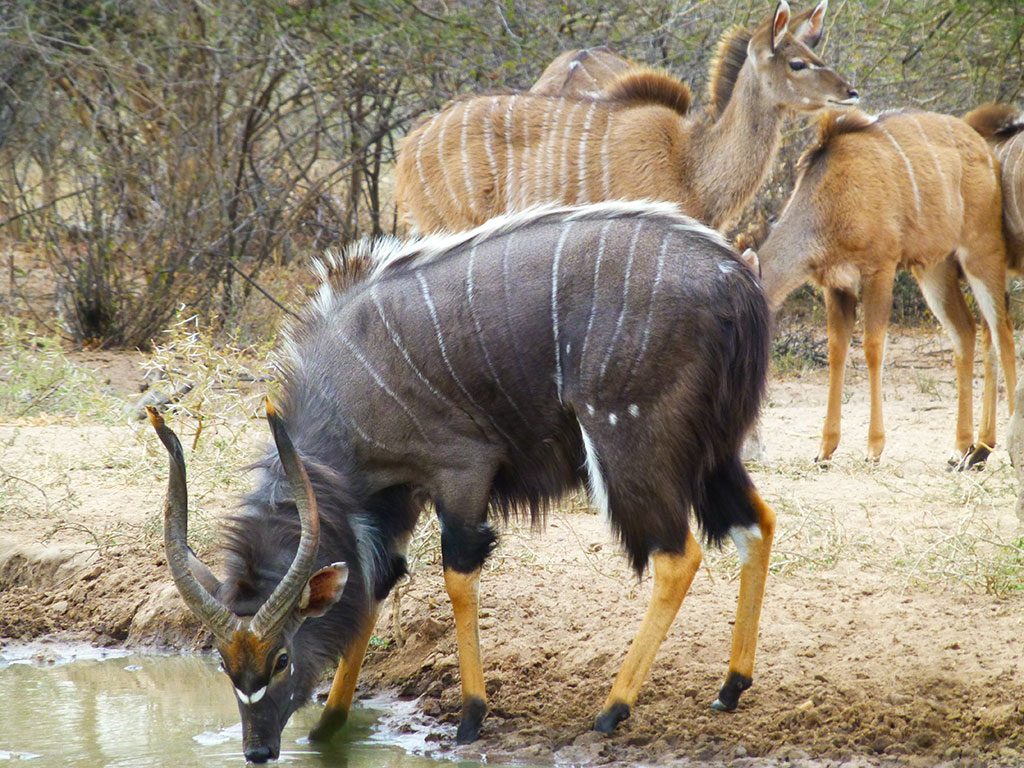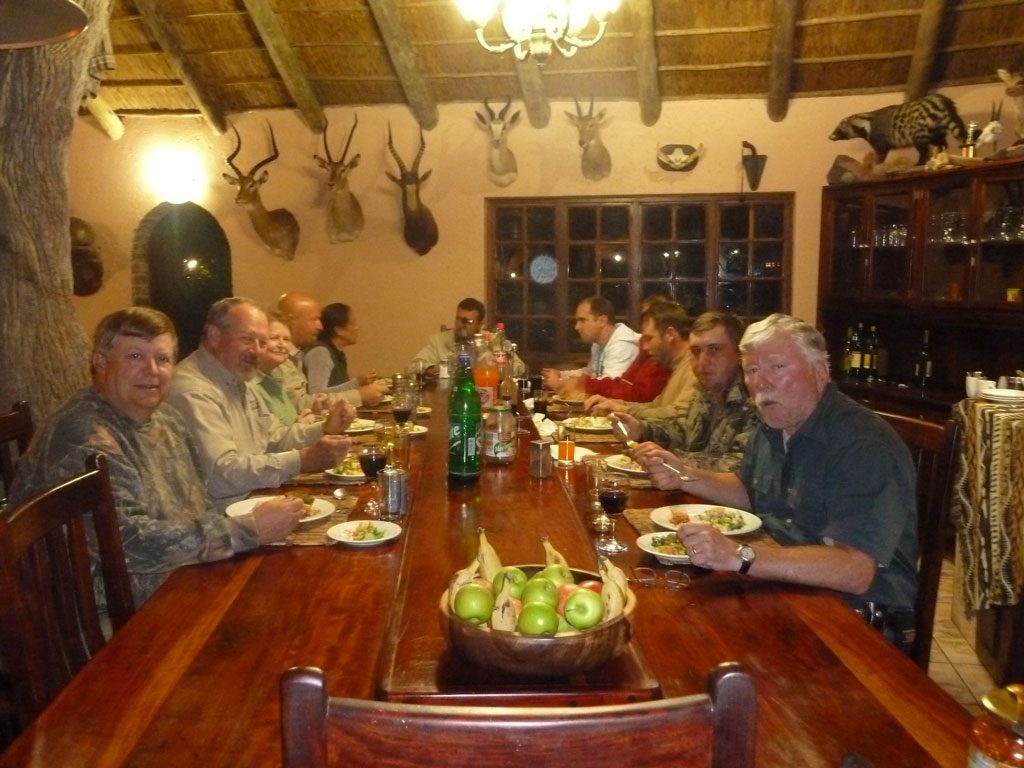
Note: This will be 1 of a 3-part article series we’ll publish – stay tuned!
5 Reasons to Take Your African Hunting Safari Now!
Hunting in Africa has long been a rite of passage for those who want to truly test their skills. Although some commercial hunting ventures were already in place, it was Teddy Roosevelt’s 1909 grand tour that ushered in the golden age of the African hunting safari. Then a hobby only for the wealthy, the African safari trade expanded rapidly, with competition pushing prices down to a level that many hunters could reasonably afford. Bagging the Big Five—the Cape buffalo, elephant, leopard, lion, and rhinoceros—is many hunters’ dream, while others go in search of some of Africa’s less costly but no less exotic game.
Times change, however, and nothing is guaranteed to last. A complicated political climate surrounds the African hunting trade, and the future of the sport is uncertain. If you have always dreamed of following in the footsteps of some of the greatest hunters of legend, it is time to stop speculating and go ahead and book your trip. Here are 5 reasons to take your African hunting safari now.[/column]
[column size=”1/2″] [/column][/row]
[row][column size=”1/3″]
[/column][/row]
[row][column size=”1/3″]
[/column]
[column size=”2/3″]1. Increased legislation
Until recently, American hunters who followed African laws during their hunts were entitled to bring home the spoils of victory. They have long been covered under a complex web of import documentation requirements, but those who were willing to file the forms were generally protected. Today, however, there is a growing push to further restrict the importation of trophy animals, particularly elephants. It is unclear exactly what the final regulations will be, but it is safe to say that importing trophies will certainly not become any easier in the coming years.
2. Expanding hunting bans
While the United States is working to make it more difficult to import trophy animals, some African countries are working to make it more difficult to hunt them at all. Zambia recently banned the hunting of leopards or lions within the country’s borders, while Botswana has banned all trophy hunting, except for designated “problem animals,” except in the country’s handful of private reserves. While hunting safaris are still going strong in other African nations, it is difficult to predict how long it will be before other countries enact bans.[/column][/row]
[row][column size=”2/3″]3. Rising costs
Though reasonably affordable, an African hunting safari has never been an inexpensive excursion. With fewer areas available to hunt and increasingly complex legal requirements, costs can be reasonably expected to rise accordingly. Of course, these cost increases are on top of the standard increases brought on by the cost of living going up each year. For the average American hunter, being priced out of the market soon is a definite possibility.
4. Waning public support
Once considered a dignified and noble pastime, hunting has gotten a bad reputation in recent years. African hunting safaris are at the top of many critics’ hate list, and a lot of those critics are extremely vocal in their protests. As the tide of public opinion turns against hunting safaris, both in the United States and our host nations in Africa, how long will it be until operators begin to close their doors?
5. Ongoing specialization
Grand hunting safaris like the one Teddy Roosevelt enjoyed simply have not been a practical option for many decades. Most hunters are on tight timelines due to work and other obligations, and trophy fees are high enough that most people cannot afford to simply bag animal after animal. “Full bag” safaris, which allow you to take one of each of the Big Five, are available but costly in both time and money. Instead, the majority of hunting safaris now focus on one or a few animals. As the legal requirements and outside pressure from anti-hunting activists continue to increase, it is reasonable to expect that further specialization will become the norm.
[/column]
[column size=”1/3″] [/column]
[/row]
[/column]
[/row]
It is difficult to say exactly what the future holds for the African hunting safari. However, current conditions suggest that a major shift could be on the horizon. If you want to get in on the old-fashioned spirit of the traditional African hunting safari, it would be wise to go now, before that concept is completely gone.
Designed for hunters by an African hunter, Discount African Hunts helps remove some of the fear and guesswork associated with traveling to Africa for a hunting safari. Manager John Martins is an avid African trophy hunter, having taken more than a dozen discounted hunting safaris in the past three years alone. He has bagged three of the Big Five, and more than 40 of Africa’s trophy species. He understands the needs and concerns of North Americans hunting in Africa, and can prepare you for what to expect. If you’re ready to take the first steps toward your dream African hunting safari, call 727-434-0840.

